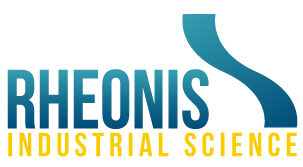What is
Industrial Phenomenology?
Industrial Phenomenology is our scientific and pragmatic analysis grid of the phenomena at work in industrial operations of material transformation.
Industrial Phenomenology aims to make up for the lack of understanding of the factors of occurrence and influence of the phenomena observed in most industrial organizations. Such a deficit is both the source and a consequence of trial-and-error empirical approaches, causing many direct and indirect costs within each service and at their interface.
Why an Industrial Phenomenology?
The usual industrial methods, initially designed in the context of assembly industries (automotive, armament, telephony, etc.) and generally presented and promoted as universal, offer a framework unsuitable for certain operations of the processing industries.
Indeed, the couplings between materials and conditions of implementation, the very issue of any material transformation operation, are considered secondary in favor of independent considerations on the material and on the process.
In the absence of an appropriate methodological approach, these questions are left to the care of empirical approaches - the tools for problem solving or experimental design being themselves poorly suited to the study of couplings.
Principle of use
Industrial Phenomenology is based on the idea that the phenomena of transformation of matter are of a physical nature (in the broad sense: physical, mechanical, physico-chemical, chemical, etc.) and that their understanding opens the possibility of their mastery.
Industrial Phenomenology therefore aims to fill this intrinsic gap in the usual industrial methods by proposing a methodological framework for the development of technical knowledge of factors related to the issues, performance and problems of material transformation.
Approach
The approach is part of a systemic framework, mobilizing both an understanding of the factors related to the material, to their formulation, to the processes, equipment, methods, instrumentation, etc.
It also calls on various technical and scientific fields (mechanics, fluid mechanics, physics, rheology, physico-chemistry, process engineering, chemistry, formulation, engineering, etc. as well as the means of investigation adapted to the issues.
In practice, Industrial Phenomenology constitutes the framework for implementing the contributions of behavioral instrumental techniques, instrumented micro-pilots, smart data such as the SPIQI methodology.
A complementary framework to the usual industrial methods
Industrial Phenomenology complements current industrial methods, of which it reinforces the scientific basis in a systematic way and limits unjustified recourse to empiricism when scientific knowledge makes it possible to anticipate or explain phenomena and their factors of appearance. /disappearance.
Its contributions are long-lasting and outline a common and concrete reading grid for the teams, making it possible to constructively question certain practices, to open up prospects for development through continuous improvement.
Last Updated on August 24, 2021 by Vincent Billot
